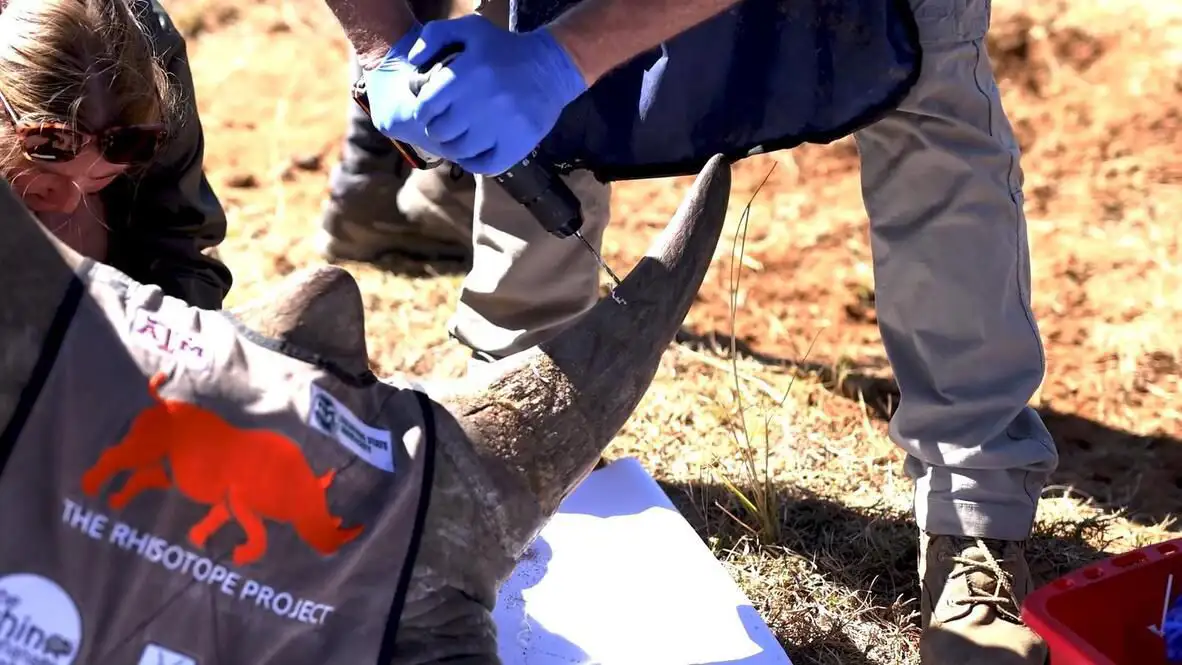In a groundbreaking breakthrough against wildlife trafficking, scientists at Wits University in South Africa have created the Rhisotope Project, a programme that injects radioactive isotopes into rhino horns to make them detectable at borders and worthless on the black market.
Footage filmed on Thursday shows rhinos being fed while roaming around in an enclosure at The Rhino Orphanage.
Wits University researchers can also be seen injecting isotope substances into a rhino's horn and hooves. The exact date of filming cannot be independently verified at the time of publication.
"In a project like this, we're always in an arms race with the poachers and the smugglers," Prof James Larkin, Director of Radiation and Health Physics Unit at Wits University, explained.
The initiative, which was launched in 2021, has now reached its final phase after researchers confirmed that the isotopes remained inside the horn without migrating into the animal's body, with the procedure harmless for rhinos.
"The key elements of their isotope project were firstly, to see if we put something into the horn, that it stays there and doesn't move into the animal," Larkin commented, adding that international comparisons confirmed the safety of the procedure.
"We are completely satisfied that no harm will come to these animals," he continued.
Arrie van Deventer, founder and director of the Rhino Orphanage, added that radioactive monitors in airports, harbours, ports, and customs offices will deter poachers from selling rhino horns.
"It's going to be very, very difficult for the criminals to move the horn [...] You can’t take that on anyway," he explained.
South Africa is home to nearly 80 per cent of the world's rhino population, with around 16,000 white rhinos and 6,000 black rhinos. Official figures show that more than 9,000 rhinos have been killed by poachers in the country over the past decade. In 2023 alone, 499 rhinos were illegally hunted, marking an 11 per cent rise compared to the previous year, according to Viory.






